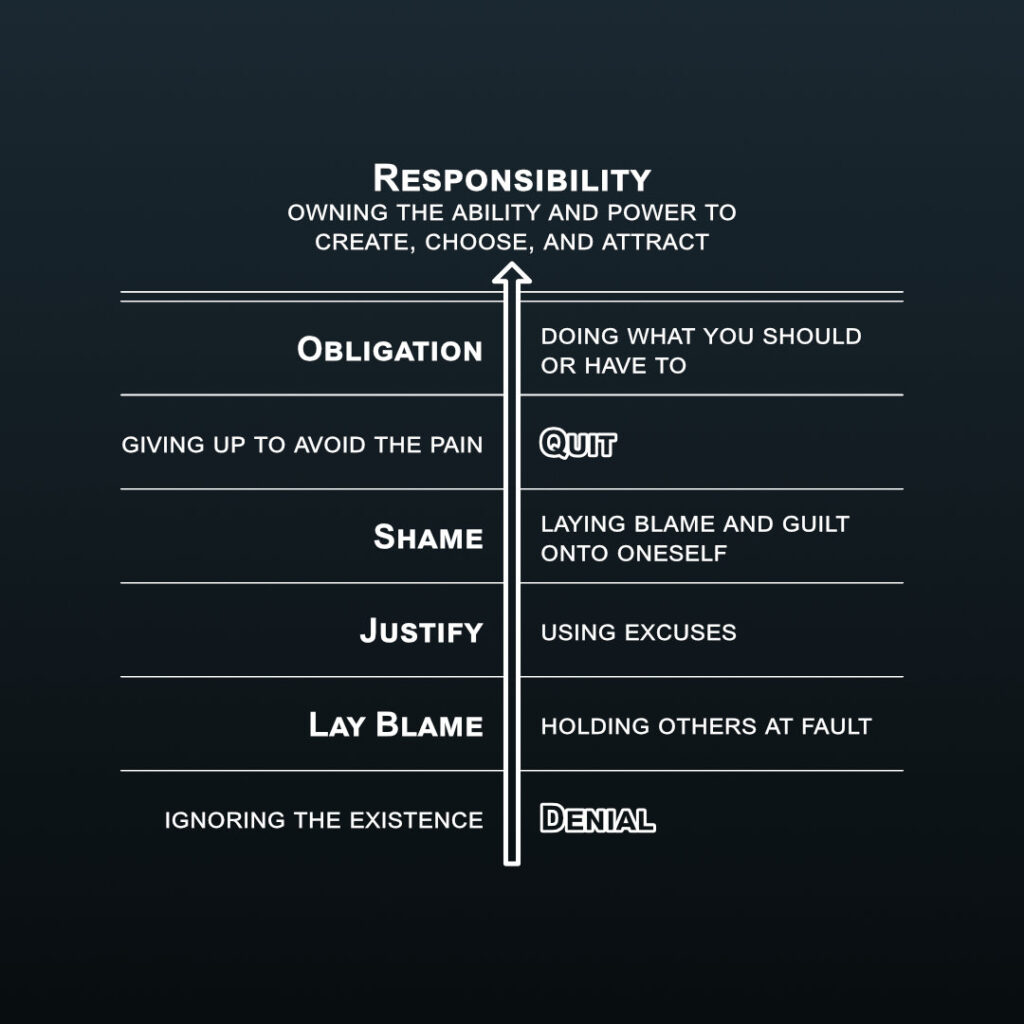Three lessons for life
What to give a f*ck about?
Enjoy the process!
Photo by Guillaume Issaly on Unsplash
It wasn't me!
“But she caught me on the counter (It wasn’t me)
Saw me bangin’ on the sofa (It wasn’t me)
I even had her in the shower (It wasn’t me)
She even caught me on camera (It wasn’t me)”
– Shaggy
Some of you may recollect the catchy tune “It Wasn’t Me” by Shaggy. Remember that guy who got caught red-handed, but instead of owning up to his actions, he tried to play it cool and deny everything? Well, as hilarious as that may seem in a song, it actually reflects a common tendency we have when facing unpleasant situations or failures.
Picture this: something goes awry, and before you know it, we are pointing fingers, shifting blame, and justifying ourselves to external factors. It is like we are starring in our own little drama, adding emotions, judgments, and interpretations that might not even be accurate. But hey, why do we do this? What is the point?
Are we really learning from our mistakes, or are we just sweeping them under the rug?
Let us dive a bit deeper into these aspects.
Note: I want to give credit to Mark Manson, known for his books “The Subtle Art of Not Giving a F*ck” and “Everything is F*cked.” His “3 Rules for Life” inspired this article, and it is a structure we will follow to explore various ideas from different thinkers and researchers.
Radical Responsibility
“You are responsible for everything in your experience,
whether or not it’s your fault.”
– Mark Manson
As the famous Spiderman quote goes, “With great power comes great responsibility” (courtesy of the great philosopher Peter Parker’s Uncle Ben), one might think that responsibility is solely for those in charge. However, when it comes to our own lives, we are the ones in charge—no one else. Yet, many people hesitate to take responsibility for their circumstances, believing that it was not their fault that certain events occurred in the first place.
Life often throws us into difficult situations that are not of our making, and that is a fact. But even though we did not cause them, we are still responsible for how we respond—how we make decisions and take action.
Christopher Avery developed the responsibility process to shed light on how we typically make decisions in such challenging situations. We may Deny the situation, Lay Blame on others, Justify our actions with excuses, Shame ourselves, or simply Quit and avoid the burden of acting.
The result of these stages? Nothing changes or improves—it is all internal or external monologue that keeps us from taking real action. Avoiding responsibility may seem like the easy way out, but it is still a decision we make about how to deal with a situation—often, not dealing with it at all.
The first step toward taking action is the stage of Obligation, where we do what is expected or what should be done. However, this often limits our actions to the bare minimum, just enough to fulfill expectations and meet norms. It is used as legitimation that we did our duties and paid our dues. But it still outsources the responsibility and does not internalize ownership of the situation, acknowledging what is truly appropriate to resolve it.
The pinnacle is reached when we truly (and radically) take Responsibility. In this stage, we engage with our abilities, creativity, and passion to the fullest extent. Not only do we address the immediate effects, but we also consider the long-lasting implications and embrace opportunities for learning and growth.
Admittedly, embracing full responsibility is demanding, and we may not achieve it for all our problems. But the more we accept and strive to be responsible, the more we can gain.
We are not helpless victims of our circumstances; rather, we are the shapers of our destiny. Let us act accordingly, even when life throws sucker punches at us.
With great responsibility comes great power.

Radical Acceptance
“There is no such thing as a wrong emotion.
Just because you feel it doesn’t mean it has to define you.”
– Mark Manson
As humans, we are inherently emotional creatures. Even those who consider themselves purely logical are not immune to the influence of feelings; they may just not be aware of or willing to admit it. Emotions are a natural and essential part of our being, deeply ingrained within our brain and body, impacting our physical and mental well-being through a complex web of pathways.
Think about those moments when your merciless inner critic picks apart your performance in a meeting, or when a driver rudely cuts you off on the road, or even the simple mishap of spilling coffee on your shirt—it is as if the universe conspires against you.
All these events trigger emotions within us, and that is entirely normal and healthy. However, sometimes these emotions can be unhelpful, especially when we let them define who we are. When we identify with them, label them as good or bad, and pass judgment without considering the consequences.
This is where radical acceptance can step in to assist. Radical acceptance involves making a conscious effort to acknowledge and honor these situations and the related emotions.
In practical terms, when faced with intense emotions, allow yourself to experience them fully. Let them happen without suppressing or denying them. Embrace the effect these emotions have on you. Neither condemn nor glorify them. Understanding that it is a natural part of being human.
The crucial point lies in how you express and respond to these feelings. You have the power to react constructively or destructively, and this is a choice you make, independent of your emotions—even if it may feel otherwise. It is still your decision, not just an automatic reflex, and it can be practiced and refined.
Accepting a situation does not imply that you approve of it or that you consider it “acceptable” for your life. Nor does it equate to complacency. It merely means recognizing its existence and understanding that you have choices in how to deal with it. Even choosing not to deal with it is still a choice.
The concept of radical acceptance finds its roots in dialectical behavior therapy (DBT), which seeks to balance change-oriented goals with the acceptance of given circumstances. The intention is to regulate emotions and limit dysfunctional thinking.
All of this requires self-awareness of your feelings, a willingness to engage with your emotions, and the practice to effectively handle them.
In the end, it boils down to this: you feel things, and you go on with it.
Radical Growth
“Every decision and action should be motivated
by the desire to improve lives, both yours and others’.”
– Mark Manson
Accepting our emotions is a fundamental part of accepting ourselves wholly—the areas where we excel and the areas where we struggle. And that is perfectly okay because every aspect of us holds the potential for improvement.
The good news is that there are no boundaries to our growth. Perfection may not exist, but progress is infinite, no matter how small it may seem.
These words may sound like simple affirmations, but at their core lies a powerful belief in human potential. Carol Dweck, the esteemed Stanford professor of psychology, calls this the Growth Mindset—an empowering perspective that recognizes our capacity to become more skilled and intelligent through effort, not limited by our genes or innate traits. This concept is reinforced by our brain’s remarkable neuroplasticity, its ability to reorganize and adapt throughout our lives, even defying age-related limitations.
Certainly, each of us has certain physiological limits. Some individuals may be more naturally gifted in certain areas. However, this only affects the ease of improvement and the ultimate outcome, not the potential for growth in any given pursuit. Most people fall short of realizing their full potential because they do not commit to deliberate practice and expanding their capabilities in the first place.
While talent is great, hard work will trump talent if talent does not work hard.
According to Alia Crum, another brilliant psychology professor at Stanford University, mindsets serve as lenses through which we perceive the world. They shape our associations, expectations, and how we make sense of complex information.
Embracing a growth mindset means seeing challenges as learning opportunities, falling in love with the process of effort rather than just the end results, persevering through setbacks, learning from criticism, and finding inspiration in the successes of others.
It is a way of emphasizing free will, effort, and choice over a predestined view of the world. It means acknowledging that we are not perfect and taking responsibility for our own lives.
Similarly, Alia Crum’s research on stress and performance highlights the benefits of adopting a “Stress-is-enhancing” mindset instead of viewing stress as debilitating. Accepting and understanding our stress response—emotions intertwined with physiological effects—and using it constructively can enhance focus, knowledge retention, and productivity.
This ability to grow and evolve is a choice we all possess. The direction and area in which we choose to grow are entirely up to us.
We are already enough as we are … but we also have the potential to become better … for ourselves and for those around us.

Be Radical - Every Single Day
“The goal in life is to fully become yourself before you die.”
– Kevin Kelly
The ultimate radical truth is that no matter how well you master these concepts today, their relevance remains undiminished for how you master them tomorrow. Each day is a new challenge and a new opportunity.
It all boils down to how you tackle it. The only thing you are entitled to is to shape your own life. No one else owes you anything.
So, better start working on it rather than waiting for it to happen.
Never peak




